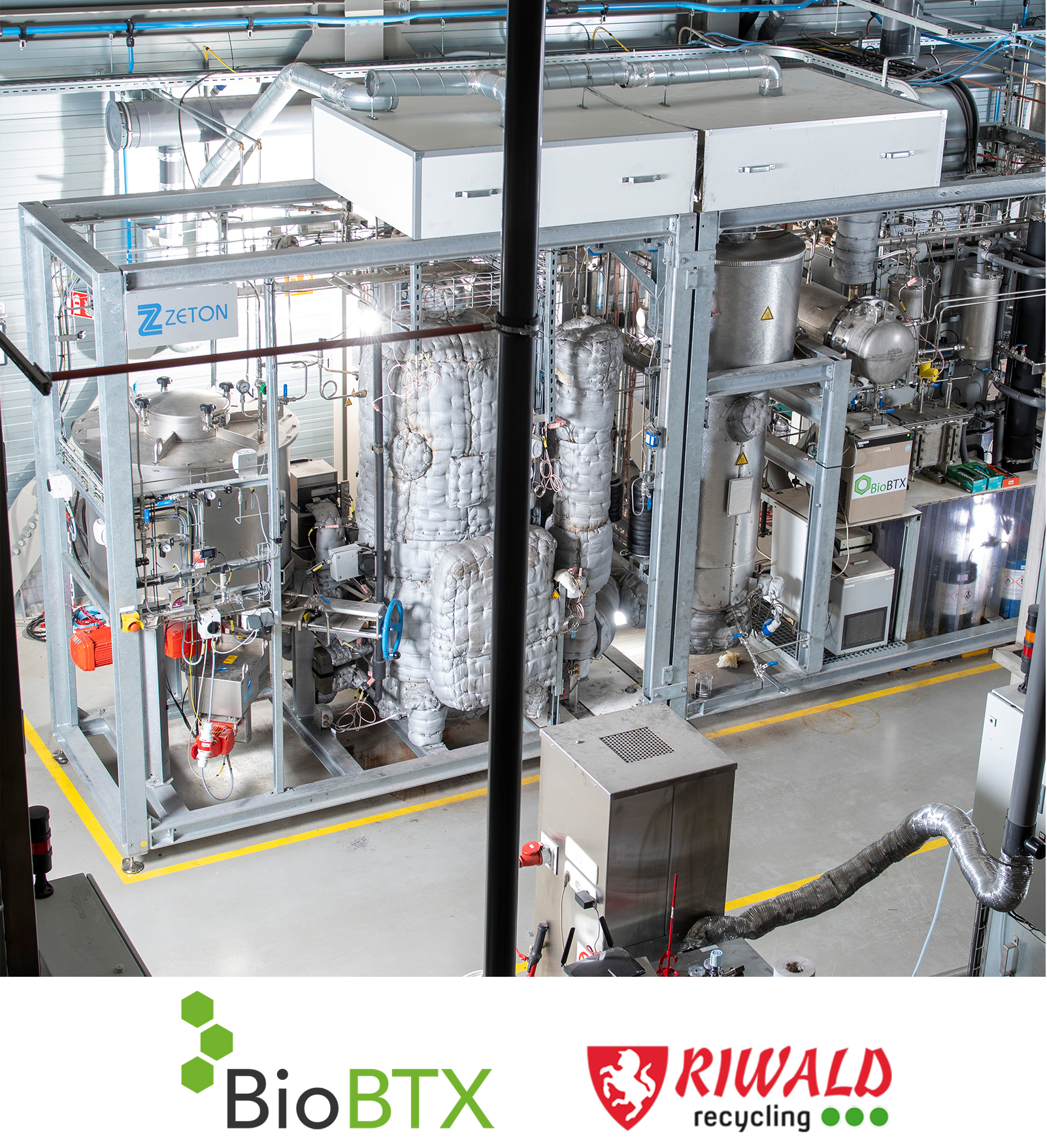PLASTIC POST-CONSUMER ELECTRONIC DEVICE AND INDUSTRIAL WASTE STREAMS
to new chemical building blocks


In today’s transition from a linear to a circular economy, an increasing interest – and necessity – exists in circular feedstock for bulk and platform chemicals for the industry as replacement for fossil feedstock. This is driven by the need to omit fossil feedstock to reduce the overall CO2 emission of the chemical industry. Not only the sustainable character is important, but recently the rising prices of conventional (oil-based) feedstock and strategic importance of these commodities have further intensified the incentive for industry to transition towards alternatives. However, as seen today, the quantities of potential biobased and renewable input streams to provide these chemicals is by far not enough to source the transition by the industry to a circular economy. Therefore, the aim of industry is to efficiently use all available alternative, circular, and renewable non-fossil feedstocks.
A large share of CO2 emissions by industry is related to the production of fossil-based chemicals (approximately 3.6Mton oil was used in the petrochemical industry in 2021 (extrapolating monthly figures published for the first half in 2021), and all this oil will be converted in CO2 at the end of life of products, if they are not recycled. By transitioning towards circular and biobased (bulk and platform) chemicals the dependence of fossil resources and the CO2 emissions of this sector can be strongly reduced.
The rising prices of conventional (oil-based) feedstock have further intensified the incentive for industry to transition towards alternatives. However, as seen today, the quantities of potential biobased and circular input streams to provide these chemicals is by far not enough to source the demand of industry. Therefore, the aim of industry is to efficiently use all available alternative, circular, and renewable feedstock; this includes the so-called complex and mixed waste streams. When value chains are in place that enable valorisation of currently wasted complex and mixed waste streams, it allows both the recycling and chemical industry to achieve this goal towards reducing its environmental impact simultaneously. A circular economy is like hitting two birds with one stone, a win-win for both parties.
Challenge for Riwald Recycling and BioBTX for a Circular Economy
To provide industry with circular and biobased bulk and platform chemicals new value chains need to be developed where ‘challenging’ waste sources such as mixed plastic, are converted by innovative technologies into new chemical building blocks.
These chemicals can be used to replace current fossil-based chemicals. This is where the point of interest of Riwald Recycling and BioBTX meet.
At Riwald Recycling, a large plastics stream results from recycling of electronic equipment, and fractionating this equipment in pure metal streams, and a plastics waste stream. Riwald is producing from its metal recycling multiple tonnes of currently nonrecyclable mixed plastics, and a part of these streams are being sent to incineration due to the lack of recycling methods, leading to suboptimal use of raw materials and no stimulation of the circular economy.
BioBTX, a circular chemical technology development company, developed a technology to produce high value chemicals (BTX) from non-homogenous carbon rich waste streams. By valorising the plastic waste of Riwald’s electronics recycling via the BioBTX technology, the waste plastics do not have to be incinerated and less fossil resources are needed for the production of chemicals. This new collaboration makes it possible to get one step closer towards a full circular economy in 2050.
Green Prospects
The collaboration between Riwald Recycling and BioBTX makes it possible to find a solution for the increasing complexity of Waste Electrical and Electronic Equipment (WEEE) products in combination with their quality of plastics resulting in a higher percentage of recycling instead of energy recovery via a waste incinerator. With this collaboration both partners benefit from each other’s expertise and will be able to collectively receive a higher recycling percentage. These kinds of collaborations are important for the industry customers such due to their circular economy philosophy and raw material policies, leading to a downstream declaration with a high percentage of recycling instead of landfill and incineration and producing high value chemicals from non-fossil resources.
